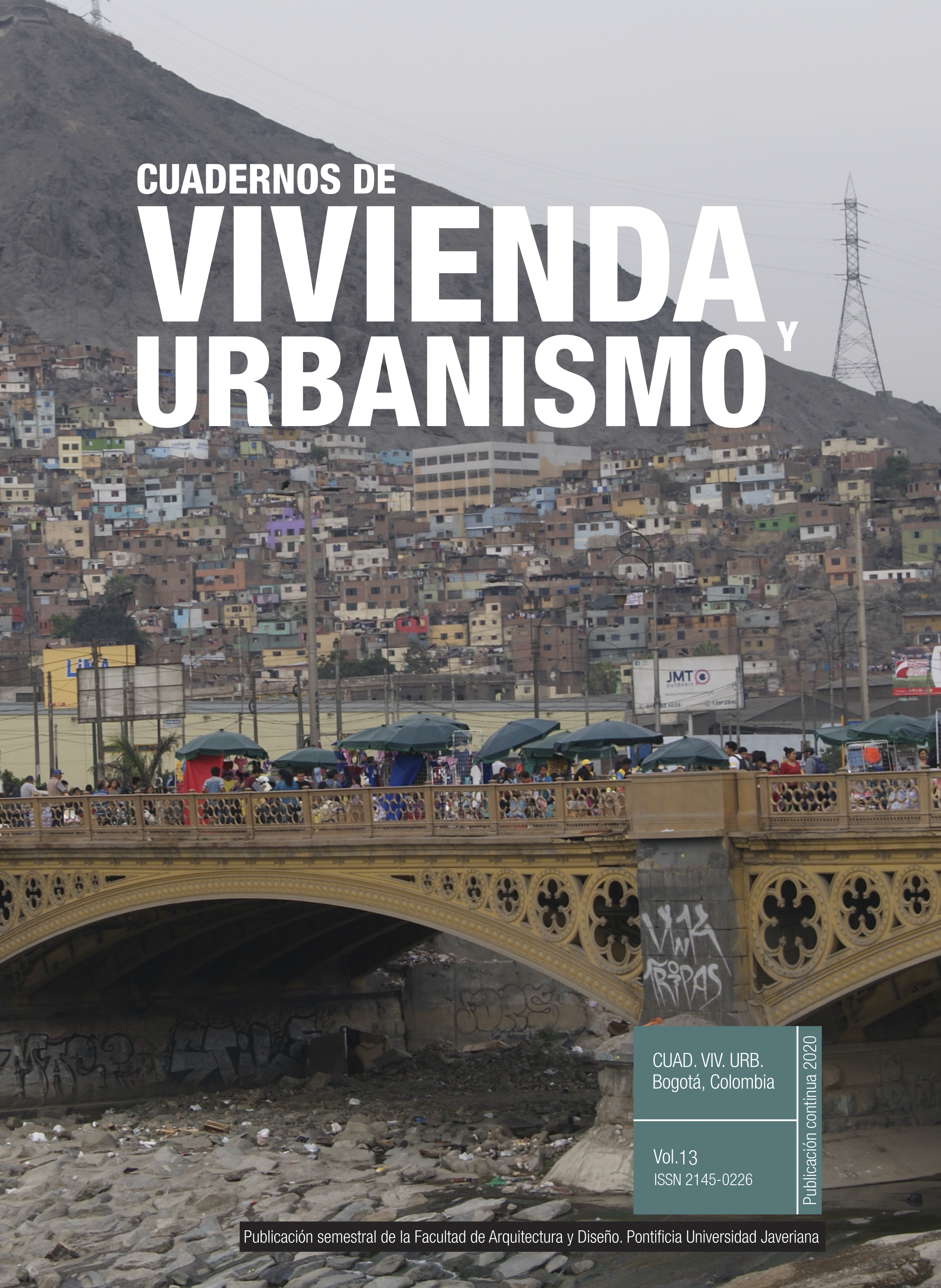Abstract
This reflection article starts with a review of the theoretical conceptions on the contemporary cities to turn them into the concept of organizational structures. Then, the article focuses on the notion of Smart City as a category. It examines the process of gaining insights from such a theoretical thinking to then focus the work on some reflections regarding the measuring systems, creation of knowledge, learning, and adaptability as these are key elements for the organizational structures
Amendola, G. (2000). La ciudad postmoderna. Magia y miedo de la metrópolis contemporánea. Madrid: Celeste Ediciones.
Browning, R. (1966). A Behavioral Theory of the Firm. Por Richard M. Cyert y James G. March. (Englewood Cliffs, N. J.: Prentice-Hall,
. American Political Science Review, 60(3), 697-698. https://doi.org/10.2307/1952987
Castells, M. (1995). La ciudad informacional. Tecnologías de la información, estructuracióneconómica y el proceso urbano-regional. Madrid: Alianza Editorial.
Cruz Kronfly, F., Aktouf, O., y Carvajal Baeza, R. (2003). El lado inhumano de las organizaciones. Cali: Universidad del Valle Facultad de ciencias de la administración. (15-64).
De Mattos, C. A. (2001). Metropolización y suburbanización. EURE, 27(80), 1-3. https://doi.org/10.4067/S0250-71612001008000001
Dematteis, G. (1998). Suburbanización y periurbanización. Ciudades anglosajonas y ciudades latinas. En F. J. Monclús (ed.), La ciudad dispersa. Suburbanización y nuevas periferias, 17-33. Barcelona, España: CCCB.
Fiol, C. M., y Lyles, M. A. (1985). Organizational Learning. Academy of Management Review, 10(4), 803-813.
Lópeza, I., Giusso, C. Juárez, M. Rotger, D., y Velazco, E. (2012). De las metrópolis a las metápolis. El paisaje como instrumento de análisis.
Caso: región del gran la plata. Recuperado de http://sedici.unlp.edu.ar/bitstream/handle/10915/26495/43- DE+LAS+METR%D3POLIS+A+LAS+MET%C1POLIS.pdf?sequence=1.
Lupiañez Villanueva, F. (2007). Ciudades Inteligentes: Evaluación social de proyectos de Smart Cities. Recuperado de ttp://cet.la/estudios/cet-la/ciudades-inteligentes-evaluacion-social-proyectos-smart- cities/.
Marcuse, P., y van Kempen. R. (2000). Globalizing Cities. A New Spatial Order. Oxford: Blackwell Publishers. Meisels, T. (2009). Territorial Rights. Nueva York: Springer.
Mintzberg, H. (1981). Organization Design: Fashion or Fit. Harvard Business Review (January-February), 103-116.
Nonaka, I., von Krogh, G., y Voelpel, S. (2006). Organizational Knowledge Creation Theory. Organizational Studies, 27(8), 1179-
http://www.estudislocals.cat/wp-content/uploads/2017/01/La_ciudad_Global-Saskia-Sassen.pdf
Sassen, S. (1995). La ciudad global. Una introducción al concepto y su historia. Brow Journal, 11(2), 27-43. Recuperado de http://www.
cronicon.net/ForoUrbano/bogota/pdf/Documento1.pdf
Sassen, S. (2001). The Global City. New York. Londres, Tokio: Princeton University Press. Seisdedos, M. C. (2014). Barcelona, cuarta Smart
City de Europa [mensaje en un blog]. Recuperado de https://www.ifeelmaps.com/blog/2014/04/barcelona-la-4-ciudad-inteligente-de-europa
Soja, E. W. (2001). Postmetropolis. Critical Studies of cities and regions. Oxford: Blackwell of World Affairs.
Strategor. (1988). Estrategia, Estructura, Decisión, Identidad: Política General de la Empresa. Barcelona: Editorial BIBLIO Empresa.
Valderrama, N. (2017). Ciudades inteligentes. Conceptos básicos (tesis de pregrado). Universidad de Manizales, Manizales, Colombia.
Veltz, P. (1996). Mondialisation, villes et territoires. L’economie d’archipel. París: Presses Universitaires de France.

This work is licensed under a Creative Commons Attribution 4.0 International License.


